MercoPress. South Atlantic News Agency
Argentina
-
Friday, January 6th 2017 - 10:45 UTC
“Celebrity Eclipse” will be returning to Argentina for the 2018/19 cruise season

Celebrity Cruises will be returning to Argentina in the 2018/19 season, and in a big way, with the Solstice class vessels, the “Celebrity Eclipse”, according to their local agents in Buenos Aires, Navijet S.A. “Celebrity Eclipse” is among the top twenty largest cruise vessels was launched in 2010, has a maximum capacity of 4.400 including passengers and crew members.
-
Friday, January 6th 2017 - 10:30 UTC
Hake ban in the shared Argentina/Uruguay River Plate and outer zone
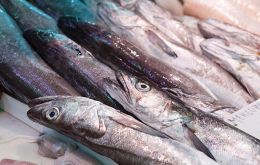
Uruguay and Argentina have imposed a hake catch ban in the shared fishing zone of the River Plate until the end of March, and also established a full twelve month catch of 50.000 tons.
-
Wednesday, January 4th 2017 - 08:54 UTC
Malvinas question: Macri should surround himself of prudent, skilful advisors, says ex Army chief
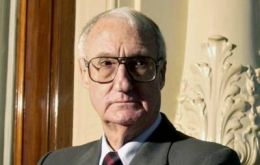
A former Argentine Army chief and Malvinas veteran, General Martin Balza said on Tuesday that president Mauricio Macri's government must “strengthen its dissuasion and negotiation capacities” in the Malvinas Islands question, and should surround himself of prudent advisors on the matter.
-
Tuesday, January 3rd 2017 - 19:57 UTC
Argentina reinstates refunds for agriculture exports
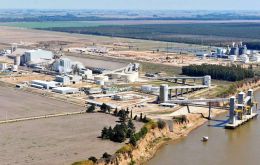
Argentina has decided to reinstate refunds for agriculture exports, responding to a promise to the provinces from president Mauricio Macri but also to prop foreign trade and boost the most dynamic sector of an anemic economy. The fiscal cost is estimated in 165 million dollars and is extensive to wheat flour, beef, sunflower oil, powder milk, cheese, honey and other produce from the provinces.
-
Tuesday, January 3rd 2017 - 09:43 UTC
Argentina purchases Israeli high speed river patrol vessels to combat drugs
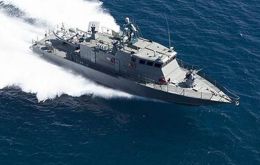
Argentina announced the purchase of four Israeli high speed and fully armed river patrol vessels, together with an integrated vigilance system for land border crossings, with a total bill of eighty million dollars.
-
Tuesday, January 3rd 2017 - 09:24 UTC
Argentine government apologize for forgetting the Falklands in a map of Argentina in New Year greetings

The Argentine government apologized on Monday for having omitted the disputed Falkland Islands in a map of Argentina included in a New Year greetings message. “Our apologies for the mistake from the Design Department in our end of the year greetings”, twitted the Development Ministry for having not included the Malvinas Islands.
-
Tuesday, January 3rd 2017 - 09:18 UTC
Carrió denies any misunderstandings with the government of president Macri

The chair of the Argentina's Lower House foreign affairs committee, Elisa Carrió said she maintains an “excellent relation” with the national government and warned she does not wish to be involved in “any sort of internal dispute”.
-
Tuesday, January 3rd 2017 - 06:56 UTC
New Year greetings to Falkland Islanders from Tierra del Fuego governor, “your governor”

Rosana Bertone, governor of Argentina's extreme south province, officially Tierra del Fuego, Antarctica and South Atlantic Islands, which obviously includes the Falklands, included in her New Year greetings a message to the Islanders calling for peace and understanding leaving aside fear and mistrust.
-
Tuesday, January 3rd 2017 - 06:41 UTC
Malvinas: Argentina calls on UK for dialogue and sovereignty discussions
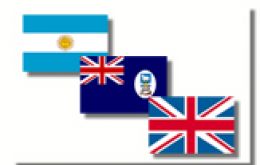
Argentina has invited the United Kingdom to advance with the dialogue initiated last year to resume negotiations to enable in the shortest time possible, to find a peaceful and definitive solution to the sovereignty dispute over the Malvinas Islands, abiding the iterative calls from the international community, according to a release from the Argentine foreign ministry.
-
Monday, January 2nd 2017 - 05:45 UTC
Argentina's new economic team aims to fight budget deficit and reform the tax code
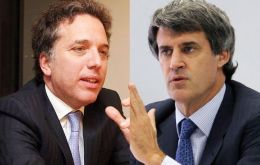
In his first public comments since his appointment, Argentine Economy minister Nicolas Dujovne told a press conference that his main objective would be to continue with center-right President Mauricio Macri's economic policies.
